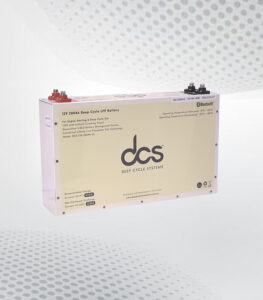
The small business landscape in the Philippines is thriving, driven by a resilient entrepreneurial spirit, a growing consumer base, and technological advancements. Small and medium-sized enterprises (SMEs) form the backbone of the country’s economy, accounting for 99.5% of all businesses, according to the Department of Trade and Industry (DTI). For many Filipinos, starting a small business is a means to improve their livelihood and contribute to the nation’s development.
Key Sectors for Small Businesses in the Philippines
There are several key sectors where small businesses flourish in the Philippines:
- Retail and Consumer Goods
This sector includes everything from sari-sari stores to online boutiques, offering essential goods or niche products. Filipinos are highly entrepreneurial in this space, leveraging platforms like Shopee, Lazada, and social media. - Food and Beverage (F&B)
Filipino culture places a strong emphasis on food, making it one of the most profitable sectors. From small restaurants, street food stalls, to homemade food deliveries, the F&B sector has seen significant growth, especially with the rise of food delivery apps like GrabFood and Foodpanda. - Agriculture and Agribusiness
Many small businesses in rural areas are connected to agriculture, including farming, livestock, and agribusiness. The government has been pushing for increased support to modernize this sector and improve productivity through financial and technical assistance. - Technology and E-Commerce
With the rise of digitalization, tech-based small businesses have gained popularity. Freelancing platforms, online stores, and digital marketing agencies are some of the common startups within this domain. The Philippines is also home to a growing number of tech startups, contributing to innovation in the economy. - Tourism and Hospitality
Small businesses in the tourism sector—such as bed and breakfasts, tour operators, and souvenir shops—are vital, especially in popular tourist destinations like Palawan, Boracay, and Cebu. Despite the impact of the pandemic, there is a steady recovery in this sector, presenting opportunities for small businesses.
Opportunities for Small Businesses
1. Government Support
The Philippine government provides various programs aimed at helping SMEs grow. Agencies like the DTI and Small Business Corporation (SBC) offer financial support, mentoring programs, and market linkage. Additionally, initiatives like the “Pondo sa Pagbabago at Pag-asenso” (P3) program provide affordable loans for micro and small enterprises.
2. Access to Digital Platforms
The increasing penetration of the internet and smartphones has opened up new channels for entrepreneurs to reach consumers. E-commerce, online payment platforms, and digital marketing tools make it easier for small businesses to launch and scale their operations.
3. Franchising Opportunities
Franchising is a popular business model in the Philippines. It allows aspiring entrepreneurs to leverage the success of established brands. Both local and international franchises offer a range of business models suited to different budget levels.
Challenges Facing Small Businesses
1. Access to Capital
One of the biggest hurdles for small businesses is securing funding. Many entrepreneurs struggle with high interest rates and the stringent requirements set by banks and financial institutions. While government programs have provided some relief, access to affordable financing remains a major issue.
2. Competition
The market can be highly competitive, especially in urban areas. Small businesses often face stiff competition from larger corporations that have greater resources, marketing power, and supply chain advantages.
3. Supply Chain Disruptions
Supply chain challenges, such as inconsistent product availability and logistical issues, can impact the operations of small businesses. This is especially true for businesses that rely on imported goods or raw materials.
4. Technological and Operational Gaps
Many small businesses still rely on traditional methods of operation, which limits their ability to scale. Inadequate technology adoption, lack of proper inventory systems, and insufficient digital marketing strategies are common challenges for small businesses in the Philippines.
Steps to Start a Small Business in the Philippines
- Market Research: Understand the market demand, competitors, and target audience. Identifying the right product or service that meets consumer needs is critical.
- Register Your Business: This involves securing a business name, registering with the DTI, the Bureau of Internal Revenue (BIR), and the local government unit (LGU). If the business is a corporation, registration with the Securities and Exchange Commission (SEC) is also required.
- Secure Funding: Depending on the nature of the business, secure capital either through personal savings, loans, or grants. Consider government programs that provide support to SMEs.
- Set Up Operations: Acquire the necessary permits, licenses, and location (whether physical or online). Set up supply chains, hire employees, and prepare the logistics.
- Marketing and Branding: Build an online presence through social media, create a website, and utilize digital marketing strategies to promote your business. Consistent branding and marketing are essential for attracting and retaining customers.
Conclusion
Small business in the Philippines are crucial to the economy, driving innovation, creating jobs, and providing essential goods and services. While challenges such as access to capital and competition persist, the opportunities in sectors like retail, food, agriculture, and technology present significant potential for growth. With the support of government initiatives and the rise of digital platforms, the small business sector in the Philippines is poised for continued success.






